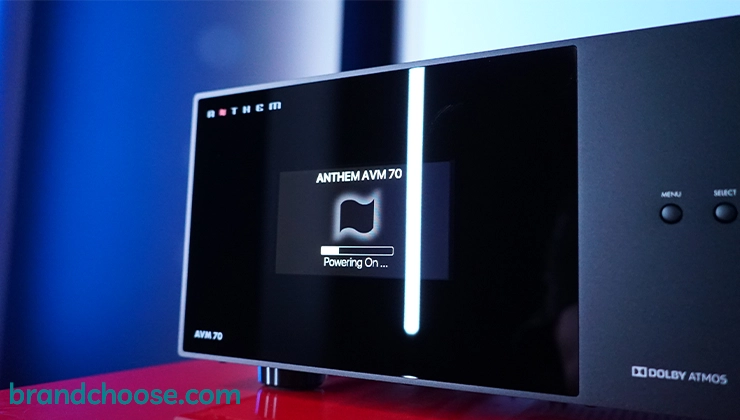
-
Immersive audio technologies like 360 Reality Audio and Dolby Atmos.
-
Seamless integration with PlayStation and Bravia TVs.
-
Advanced gaming features including VRR, ALLM, and eARC.
-
Sleek, modern design with premium finishes.
-
Affordable entry-level options starting at just $200.
-
Superior smart ecosystem compatibility with Google Assistant, Alexa, and more.
Sony AV Receivers
In the realm of home entertainment, the heart of a truly immersive experience lies within the audio-visual (AV) receiver. Among the myriad of options available, Sony AV receivers stand out as beacons of innovation, performance, and reliability. In this article, we delve into the realm of Sony AV receivers, uncovering what makes them exceptional, their unique features, advantages, disadvantages, and why they deserve a place in your home theater setup.
Sony AV receivers serve as the nerve center of your home entertainment system, designed to decode, amplify, and distribute audio and video signals with precision and clarity. Infused with cutting-edge technology and decades of audio expertise, Sony receivers deliver an unparalleled audio-visual experience that captivates the senses and transports you into the heart of the action.
Connectivity Options
Sony's AV receivers are renowned for their extensive connectivity options, incorporating the latest technologies to ensure seamless integration with a variety of devices. The brand's models typically include multiple HDMI inputs and outputs, USB ports, and digital audio inputs. For wireless connectivity, many Sony AV receivers are equipped with Bluetooth, Wi-Fi, and AirPlay capabilities, allowing for easy streaming from smartphones, tablets, and computers. Some models also support multi-room listening through Sony's Music Center app, providing a convenient way to control and distribute audio throughout the home. However, while Sony's AV receivers offer robust connectivity, they do not always support the latest HDMI standards, such as eARC or HDMI 2.1, which could be a drawback for those looking to future-proof their home theater setup. In comparison, brands like Denon and Marantz often include these features in their AV receivers. Nevertheless, Sony's connectivity options are generally reliable and versatile, making them a strong choice for those seeking to connect a wide range of devices.
Anthem AV Receivers
In the realm of home entertainment, the pursuit of superior audio quality drives enthusiasts to seek out the best audio-visual (AV) receivers. Among the multitude of options available, Anthem AV receivers stand out as exemplars of innovation, performance, and craftsmanship. In this article, we delve into the realm of Anthem AV receivers, unraveling their unique features, advantages, disadvantages, and why they deserve consideration as the centerpiece of your home theater setup.
Anthem AV receivers are high-performance audio-visual receivers designed to deliver exceptional sound quality and immersive home theater experiences. Manufactured by Anthem Electronics, a Canadian-based company known for its commitment to audio excellence, Anthem AV receivers are renowned for their precision engineering, advanced features, and uncompromising performance. These receivers serve as the central hub of a home theater system, decoding audio signals from various sources such as Blu-ray players, gaming consoles, streaming devices, and more. Anthem AV receivers amplify and process these signals to deliver high-quality audio to connected speakers, creating immersive surround sound experiences for movies, music, and gaming.












